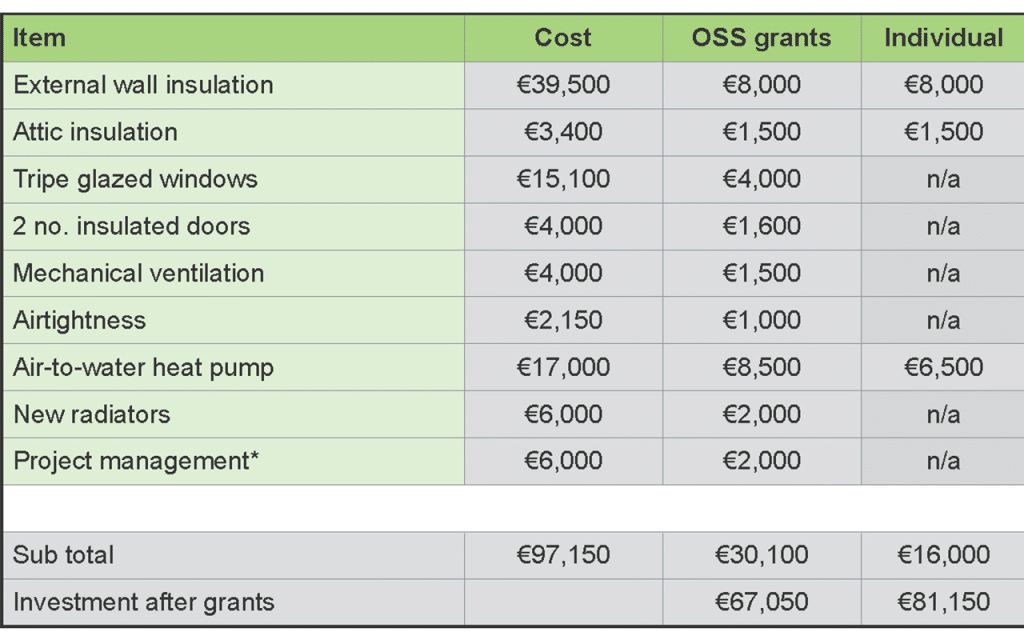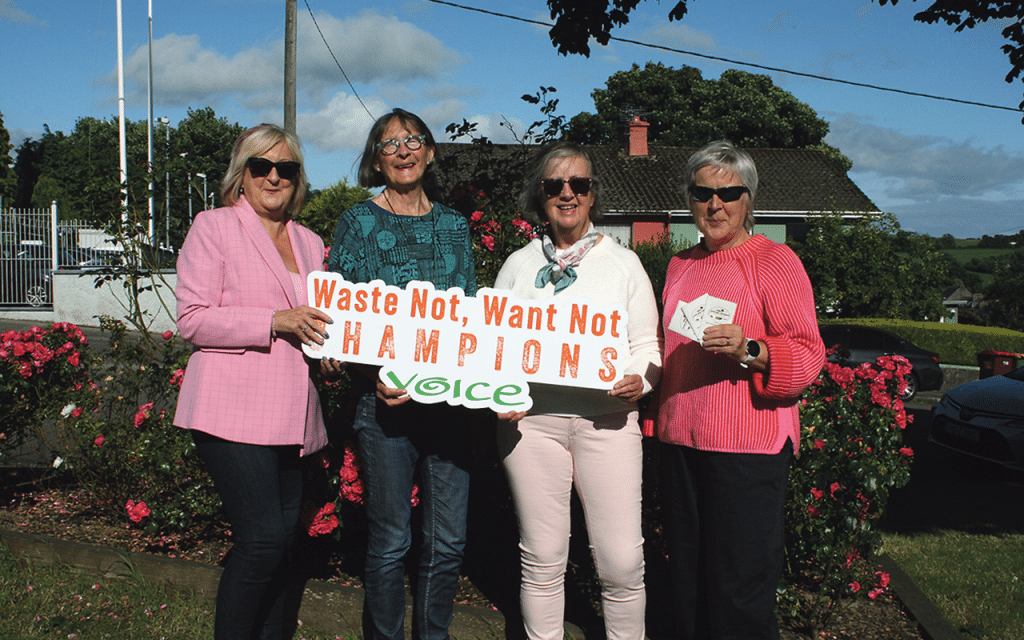As an assessor, I regularly complete assessments for one-stop shop upgrades. There are certainly advantages to the One Stop Shop scheme over the individual grants, but there are also additional requirements and restrictions. So how does it all work?
The government launched the One Stop Shop, (OSS) scheme in early 2022 with the aim of addressing some of the shortfalls of previous grant schemes and to stimulate the pace of upgrades towards our 2030 target to upgrade 500,000 homes to a B2 BER or better. There are currently 20 registered OSSs and the scheme is administered by the Sustainable Energy Authority of Ireland, (SEAI).
The main criteria to avail of the OSS scheme is as follows:
• You must work with a registered OSS who manages the upgrade process
• Your property must have been built before 2011
• Your starting BER needs to be a B3 or worse
• The upgrade must achieve a B2 BER or better post works and meet a minimum improvement in BER, i.e. if you start with a B3 you may need to get an A2.
• If you are fitting a heat pump as part of the upgrade, you need to meet the heat pump technical assessment criteria, (minimum level of insulation)
The above criteria can sometimes be a little restrictive. Personally, I find quite a few of my clients who are planning an upgrade of this magnitude, are also completing additional work; extending or refurbishing their home at the same time. The interaction between the upgrade and non-upgrade works brings an extra level of complication. Some OSSs will take on general building work too, which is a bonus but others might not and will need to work alongside your local builder or in some cases they may not wish to work on these kinds of projects at all.
The other thing I find is that if you are not fitting a heat pump or solar PV it can sometimes be hard to meet the B2 criteria with your upgrade. This is no accident; the scheme targets are engineered to encourage heat pump installation. The government targets to complete 500,000 upgrades by 2030 includes the installation of 400,000 heat pumps, which it is hoped will be the future of low carbon heating.
The final point to be aware of is that under the OSS scheme, the upgrade work must be completed in one go. This means anyone who is planning to upgrade their home to B2 over a number of years/stages is ruled out and restricted to the individual measure grants only.
To illustrate the differences between the One Stop Shop and Individual Energy Upgrade grants, I have taken the same case study used in my last article on heat pumps and added cost estimates for the upgrade works along with grants available under the two different schemes. The dwelling is a 150sqm, 1900s stone farmhouse with an existing BER rating of G. A typical full upgrade is planned; external wall insulation, triple glazed windows and doors, roof insulation, airtightness, ventilation and an air-to-water heat pump. The costs are based on my own experience of typical OSS pricing.
One of the main advantages of the scheme is that the OSS manages the entire upgrade process from initial assessment to completion of the work and claiming the grants. There are also additional grants, (for example windows, doors and mechanical ventilation) which are not available individually. One of the other major advantages is that the grant value is deducted from the final cost of the works; homeowners only pay the balance, unlike the individual grants where you must pay the grant amount upfront and then reclaim it after the work is completed and paid for. In theory the process should also be smoother with less disruption, as you have one point of contact and one main contractor responsible for the work. Finally, work completed by a registered OSS would be eligible for the new Home Energy Upgrade Loan Scheme.

As can be seen on the above table, the difference between the OSS and individual grants in this case is roughly €14,000 when completing a full upgrade with a heat pump, resulting in an A3. For comparison, the same upgrade with a condensing oil boiler only achieves a B2 and the difference in grant amount between the two schemes is less, roughly €10,000.
So in financial terms, if you are completing a whole house upgrade all in one go there are considerably more grants available through the OSS route and this is probably worth exploring at least.
As a first step, a Home Energy Assessment, (HEA) will give you a detailed report on your home with recommended upgrades, estimates of costs and grants available, as well as an existing BER, (see my article in May’s addition for further details on different assessment types). This can then be used to get quotes for the work and also forms a roadmap for your upgrade, particularly if you are planning to complete it over a number of stages/years. SEAI offers a €350 grant towards the cost of a HEA, but you need to work with a registered one-stop shop to avail of this, who will organise the assessment on your behalf. There is no commitment to work with the OSS beyond the initial HEA and the idea is that you can take your assessment and get alternative quotes from a number of providers, though this is not always as straightforward as it should be. You should also be aware that the HEA will be somewhat tailored to what the particularly OSS wants to and is capable of offering you. If you are prepared to forgo the HEA grant you may be better off to appoint a technical assessor directly to complete an independent HEA, fully tailored to your needs.



